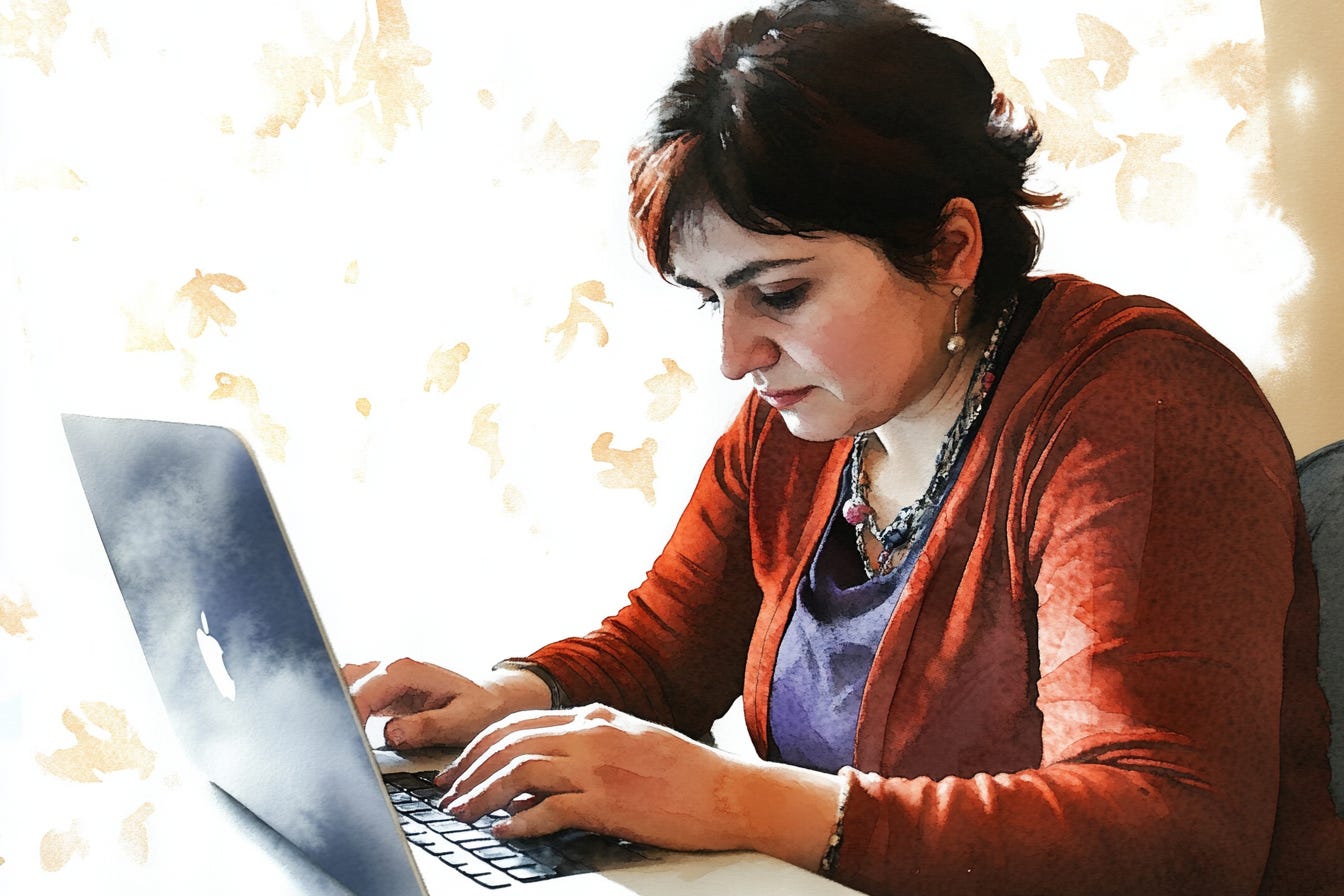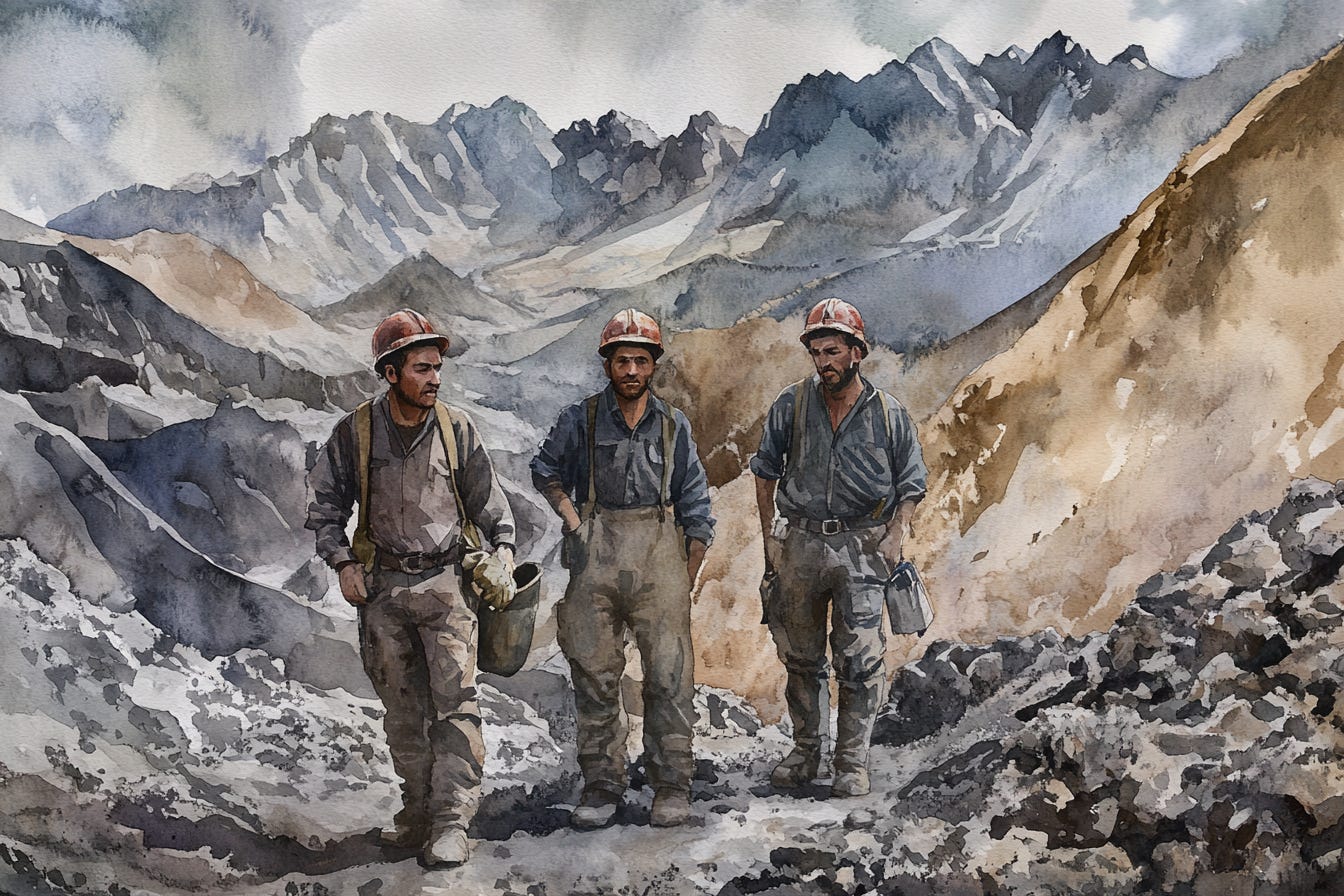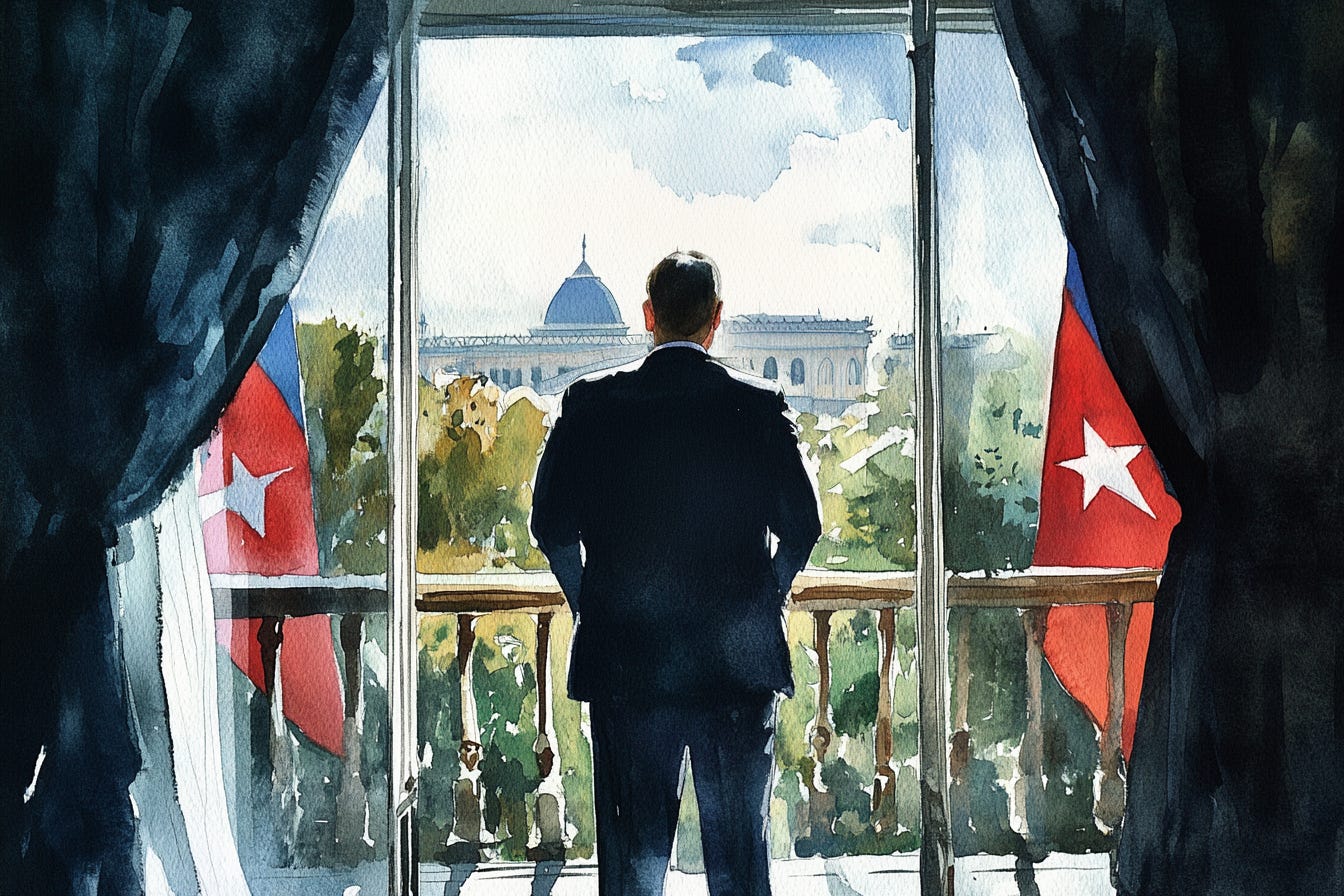The Two Faces of Azerbaijan: Corruption with Notes of Petroleum
The Lookout Report has met and interviewed Azerbaijani journalists, human rights activists, and dissidents to uncover the true story behind Azerbaijan as it prepares to host COP29. Part 2 of 3.
Written by Felipe Branner
This is the second article in a three-part TLR series on Azerbaijan: “The Two Faces of Azerbaijan”. Last week week we featured a piece on torture and repression in Azerbaijan. Next week we will feature one on the country’s foreign policy.
If you were to mention Azerbaijan to most people today, chances are that the overwhelming response you’d get is total indifference. Perhaps a few know it from its appearances in Eurovision, but it is not common knowledge that, nestled in the Caucasus Mountains at the edge of the Caspian Sea, there is a powerful petrostate competing with the emirates and kings of the Persian Gulf.
On the heights overlooking Baku, the country’s capital, the iconic Flame Towers dominate the skyline. The landmark building, sports a luxurious Fairmont hotel, with 299 superbly appointed guest rooms and suites, 19 serviced apartments. The hotel brands itself on utmost luxury, claiming to exceed 5-star standards. Its beds, made with exquisite linens and its spacious spa-like bathrooms, decorated with intricate carvings of marble. Along Baku’s waterfront, its boulevards; in the snow-capped mountains of Azerbaijan, 5-star luxury resorts dot the landscape featuring Western brands, such as Marriott, Four Seasons, and Hilton.
These hotels, and the wealth they represent, are only accessible to most Azerbaijanis through TV. A single night at the Fairmont Flame Towers would set you back about 300 AZN, for the hotel’s cheapest room (270 USD). The average monthly salary in Azerbaijan is around 800 AZN (494USD).
What is even less known to Azerbaijanis however, is that this hotel was built with public funds, and is secretly owned by President Ilham Aliyev’s two daughters Arzu and Leyla Aliyeva. One of many cases of direct family enrichment by the regime.
It is in these Aliyev regime-owned hotels where foreign dignitaries will be accommodated for the premier COP29 climate conference coming up in the fall.
The Lookout Report has over the last weeks met and interviewed Azerbaijani journalists, human rights activists, opposition leaders, writers, and diplomats living in exile. This article lifts the veil on a country where, in spite of official figures, around 20% of the population is poor or lives close to the poverty line (2020), corruption is endemic and is used as a tool by the ruling elite to maintain a firm grip on its citizens. Although briberies and favours are common practice in the country’s bureaucracy, Azerbaijan goes far beyond, and has implemented a system of institutionalized corruption revolving around a secretive state oil-fund - and it is in the ledgers of this monolith that the origins of the awesome wealth of the Aliyev family dynasty are to be likely to be found. It is also the story of a brave journalist working to uncover this system, in spite of the consequences, by poking her fingers in the eyes of the bear.
The Unique Oligarchization of Azerbaijan
Azerbaijan sits on top of a virtual pool of wealth and annually produces an average of 38-40 million tons of oil and more than 30 billion cubic meters of gas. Its oil and gas fields have been coveted by everyone, from Hitler’s Heeresgruppe Süd to the Soviet Union and their forces. Hence, when the USSR fell, Azerbaijan found itself in a situation which, according to renowned scholar on Azerbaijan, Audrey Altstadt, was hardly comparable to any other state in the region. Its neighbour Armenia was resource-poor and Georgia embroiled in a brutal civil war. Azerbaijan, it seemed, was poised for a different future.
Thus it was hardly surprising that the process of oligarchization, the concentration of wealth on few hands, seen throughout much of the former USSR, had in Azerbaijan, a distinctively oily taste to it - with notes of petroleum. The Aliyevs quickly seized upon the coveted resource, the key to both power and influence. But it was not merely a typical case of selling its oil company off for peanuts to loyal supporters, no - instead an intricate system was built around the country’s state oil company SOCAR and the country’s state oil fund, SOFAZ, who as unlike the Norwegian state oil fund, which lubricates the intricate social welfare system of its democracy, Azerbaijan's SOFAZ fuels the engine of the kleptocracy.
On the official website of SOFAZ, it writes that its mission is to; “is to transform depletable hydrocarbon reserves into financial assets generating perpetual income for current and future generations.” The tools with which it seeks to do so: industrial diversification and financing of major infrastructure projects. International analysts are concerned, however, that the fund is being used to funnel wealth into the hands of the Aliyev family and his close circle.
Unlike with the Norwegian State Oil Fund, in the cases of SOCAR and SOFAZ, parliament has very limited authority to inspect and monitor their activities. SOCAR, for all intents and purposes, only answers to the President of the Republic of Azerbaijan, and does not report on its activities to other bodies, including parliament. This is no small deal as these entities move around vast sums of money: At the end of 2018, the number of employees in SOCAR was 51,125 people and itn 2019 the company’s assets amounted to $38.24 billion, and total revenues amounted to $49.29 billion. Available data from 2014 shows that total SOFAZ assets were reported as $30 billion.
In an interview with TLR, we asked Prof. Altstadt about the ramifications this lack of transparency has for SOFAZ and SOCAR: “[B]ecause of the lack of Transparency in SOFAZ, its pretty much impossible to say where the money goes once it comes in”. “SOCAR already on its part, has some very suspicious sub-companies that are bought and sold back at huge profits - but SOFAZ has no information, but tens of millions, maybe hundreds of millions of oil revenue goes in there”. “The lack of transparency, the lack of audits, and its lack of reporting, is one of the reasons the EITI (Extractive Industries Transparency Initiative) changed their guidelines around 2013, and although Azerbaijan qualified to be part of the organisation under the old guidelines, which only looked at aggregate sums, the situation was different with the new guidelines requiring disaggregated data, on both income and expenditures, and value of the funds that it oversaw”. “Azerbaijan claimed that EITI was beginning to act like an NGO, which to them is bad, and hence they withdrew from it”.
Corruption in Azerbaijan is by no means as simple as a direct transfer of funds from the coffers of SOFAZ into the pockets of the Aliyevs. Instead it is an intricate scheme, of a shell companies, subcontractors and off-shore tax-havens. However, it would take the workings of one brave journalist to light the spark, eventually turning into a light on just how much corruption permeates every inch of the Azerbaijani regime.
The Case of Ismayilova
It was the assassination of a fellow journalist and colleague, shot dead on his doorstep in 2005, that awakened a then-28-year-old reporter and inspired her to devote her life to exposing corruption in Azerbaijan. Her colleague, Elmar Huseynov, had been publishing an independent and very critical magazine targeting regime corruption in the country. Working with Radio Liberty and the Organized Crime and Corruption Reporting Project, Khadija Ismayilova, started digging into the workings of Azerbaijan’s kleptocracy. Ismayilova broke her first story in 2010.
As it turned out, Arzu Aliyeva, the daughter of President Ilham Aliyev, was on-paper one of the owners of the country’s Silk Way Bank. As will be a recurring theme throughout this article, the bank was part of a larger, recently privatized company, enjoying a near-monopoly status over every aspect of airline service businesses including the airline catering company, the airport taxi service and even the job of maintaining the planes and helicopters.
This wouldn't be the last time Aliyev’s daughters would emerge from intricate webs of shell-companies in off-shore holdings. In June of 2011, Ismayilova proved they were the main shareholders of Azerfon, then Azerbaijan’s only provider of 3G mobile phone services. A few years earlier, everyone had believed what the government had announced — that Azerfon belonged to the German firm Siemens A.G. and a couple of British firms.
As to why the daughters were listed as owners, this has a rather simple explanation. According to Azerbaijani law, no public official is allowed to hold “private interests” in companies, making it illegal for Ilham Aliyev himself to engage in such enterprises.
In 2011, Ismayilova exposed that one construction-contractor affiliated with the Aliyevs was being used in what the President referred as a “patriotic project” - building the tallest flagpole in the world, clocking in at a whopping 162 meters. (whose status was short-lived since Tajikistan, another country famed for it’s leader’s “interesting” pet-projects, shortly after the project’s completion, overdid Azerbaijan with a mere 3 meters, in what must inevitably be one of the most hilarious pole-measuring contests of autocrats in years). Ismayilova publicly criticized this project on her podcast.
Shortly after, she received a mysterious package by mail, including a note with the following wording: “You whore. Behave or you will be defamed”. The package also included photographs that Ismayilova identified were still images that came from a video camera. In an interview with OCCPR, she explains that was hidden camera footage from her bedroom, showing her and her boyfriend engaged in sexual relations. Not one to back down, she proceeded to break another story, leading to the images mysteriously appearing on state-television. Initially scared about the backlash she would face, in what is by many means still a islamically-conservative country, Ismayilova herself states that she was surprised with the support she received from many of her countrymen.
She went on to expose, amongst other things, how the Aliyev family secretly owned major construction and telecommunications companies, the state airline, gold mines in the west of the country, and amongst other services, another bank. All managed through an elaborate web of shell-companies held in off-shore tax-havens, registered in the names of Aliyev’s two daughters, his son, wife and father in-law (who is one of the richest men in Azerbaijan). This is where SOFAZ makes its reentry into the narrative. By controlling some of the country’s biggest infrastructure companies, the Aliyev Family has managed to siphon revenue out from the SOFAZ by employing their companies as contractors. It turns out, for example, that President Aliyev’s youngest daughter, Arzu, at the grand age of 19, became the secret co-owner of AAC, described as the “main player for almost all megaprojects” in Azerbaijan.
Ismayillova was arrested in 2014, and accused on counts of tax evasion and ‘abuse of power’ was sentenced to 7.5 years in prison, after what many has called a fast-moving sham trial. After international outcry culminating in 2017, Ismayilova was released from prison. Nonetheless she has not yet been pardoned and is thus unable to leave the country.
The question remains, from where the Aliyev family found the funds to acquire these companies in the first place? “ Aliyev’s current earnings as president are not known, but his last published official salary, in 2015, was about $230,000 a year. As previously mentioned, contrary to its Norwegian counterpart, SOFAZ is not publicly managed or transparent. The president’s role as de-facto sole manager and chief executive of the fund has led many to suspect that it is perhaps in the ledgers of SOCAR and SOFAZ, from where the Aliyev’s billions have materialized.
During Ismayilova’s incarceration her international colleagues in the OCCRP uncovered many other instances of significant corruption in Azerbaijan. These discoveries were helped along by the Pandora and Panama Papers.
Amongst these discoveries was the fact that Aliyev’s two daughters, Leyla and Arzu Aliyeva, owned 56% of shares in a consortium operating six gold-mines in the country’s west. A venture so disastrous that the state-owned AzerGold, had to step in and bail the consortium out - essentially meaning that Aliyev used public funds to bail out his daughters ill-fated venture. The mine-workers saw nothing to this bail-out, their salaries withheld. And since then they have been caught in a legal limbo because they were never officially laid off, and are therefore legally unable to take new jobs under Azerbaijani law.
Another major finding showed that the Aliyevs and their close circle own some of Baku’s and Azerbaijan’s most luxurious hotels and resorts. Hotels built with tax-payer money ahead of the European Games 2015. The OCCRP found that Leyla and Arzu Aliyeva directly own or are closely connected with six five-star hotels in Baku, amongst these known Western brands like Four Seasons, Fairmont, Sheraton, and Marriott. They also own two exclusive mountain resorts. These hotels are so exclusive that, to stay a mere night or two, would equal a month’s paycheck for the average Azerbaijani.
The Aliyevs also control virtually an empire of properties in the city of London (you can even take a virtual tour). As part of the Pandora Papers leak, investigative journalists discovered how Aliyev’s two daughters, his son, his father-in-law, and two of the family’s close business associates have held, at their peak, a staggering £429 million ($694 million) in London real estate — including prominent historical buildings, commercial developments, and luxury apartments in prestigious neighborhoods. Through the Pandora Papers journalists were able to discover such strangely comic instances, as April 29, 2009, where the tenants of a strip of shops and offices on Maddox Street in London’s exclusive Mayfair neighborhood woke up with a new landlord: an 11-year-old boy. Heydar Aliyev Junior had before even entering his teens become a real-estate mogul, most likely unbeknownst to him, since the business was managed through a shell company located in the British Virgin Islands.
These are but a small number of instances of corruption in Azerbaijan. From corruption in its dealings with British Petroleum to SOCAR superyachts seemingly cruising empty around the Mediterranean, to the appointment of an Aliyev loyalist as the director of the country’s central bank, the list goes on. The author refers to the OCCPR for more information.
Corruption as a Tool of Power
What motivates all this corruption? Is it simple greed or are there other sinister motivations at play? Though greed might be part of the answer, an alternative explanation is offered by Prof. Gubad Ibadoghlu, currently under house arrest in Azerbaijan. Ibadoghlu is Professor at the London School of Economics, and a prominent Azerbaijani opposition leader. He argues that corruption is actively used by authoritarian governments to maintain a firm grip on society. Azerbaijan being a case in point.
According to Ibadoghlu, leaders of authoritarian regimes often play a central role in fostering and sustaining corrupt practices, operating on the belief that widespread corruption strengthens their control. One of their key strategies involves deliberately keeping the salaries of civil servants, teachers, and healthcare professionals below the national average, as is the case in Azerbaijan. This economic disparity drives these groups, particularly teachers and doctors, to rationalize accepting bribes as a necessary supplement to their low wages. Over time, this dependency on bribery co-opts them into the authoritarian system. Fear of reprisals, such as arrest or torture, ensures their loyalty to the regime and discourages participation in movements for reform. Consequently, these individuals become instrumental in election manipulation and other unlawful activities, as they seek to prove their loyalty and utility to the regime.
Furthermore he argues that authoritarian leaders often equate the accumulation of wealth with the sustainability of their rule. This mindset fuels their belief that monetary power can resolve all political and social challenges, enabling them to remain in power indefinitely. As the ruling elite amasses more capital, their confidence in their invulnerability grows, creating a disconnect between them and the general population. This increasing detachment from the realities faced by their citizens allows them to rely primarily on their financial resources to quell dissent and maintain political control, further entrenching their autocratic governance.
To Ibadoghlu there is no doubt to whether Aliyev is aware as to the extent of the corruption present in Azerbaijan. Authoritarian leaders are, acorrding to the LSE professor, acutely aware of the pervasive corruption within their regimes, as they typically exercise strict control over the flow of illicit funds. With the case of Azerbaijan being no different. In highly corrupt systems, mechanisms for centralized collection and distribution of bribes are often directly managed by the ruling elite. This knowledge underscores their complicity in maintaining and benefiting from these corrupt networks, as they ensure that wealth gained through corrupt means is funneled back to sustain their power and influence.
All Under the Sun
Former Azerbaijani ambassador and top-diplomat Arif Mammadov, turned critic of the regime, said the following, when speaking to TLR about corruption in Azerbaijan: “Everything that is under the earth belongs to them [the Aliyevs], oil, gas, and minerals; on the earth, all the hotels, banks, and telecom-companies belong to them; in the air they own the national airline (Azal) and Silk Way transport companies; they even own space, the space agency is chaired by Aliyevs father in law.” As Prof. Ibadoghlu argues, corruption in Azerbaijan has concentrated both vast sums of wealth, but also power in the hands of a small Azerbaijani elite. This has vast ramifications for the country’s foreign policy, allowing the regime’s tentacles to reach far into the offices of European and even American policymakers. The same policymakers, that in November will tour Baku and populate its hotels. More severely however, the funds, accrued by the Aliyev regime through corruption, permits the regime to terrorize dissident voices abroad, leaving a trail of blood and extrajudicial murders. A topic for next week’s article.












